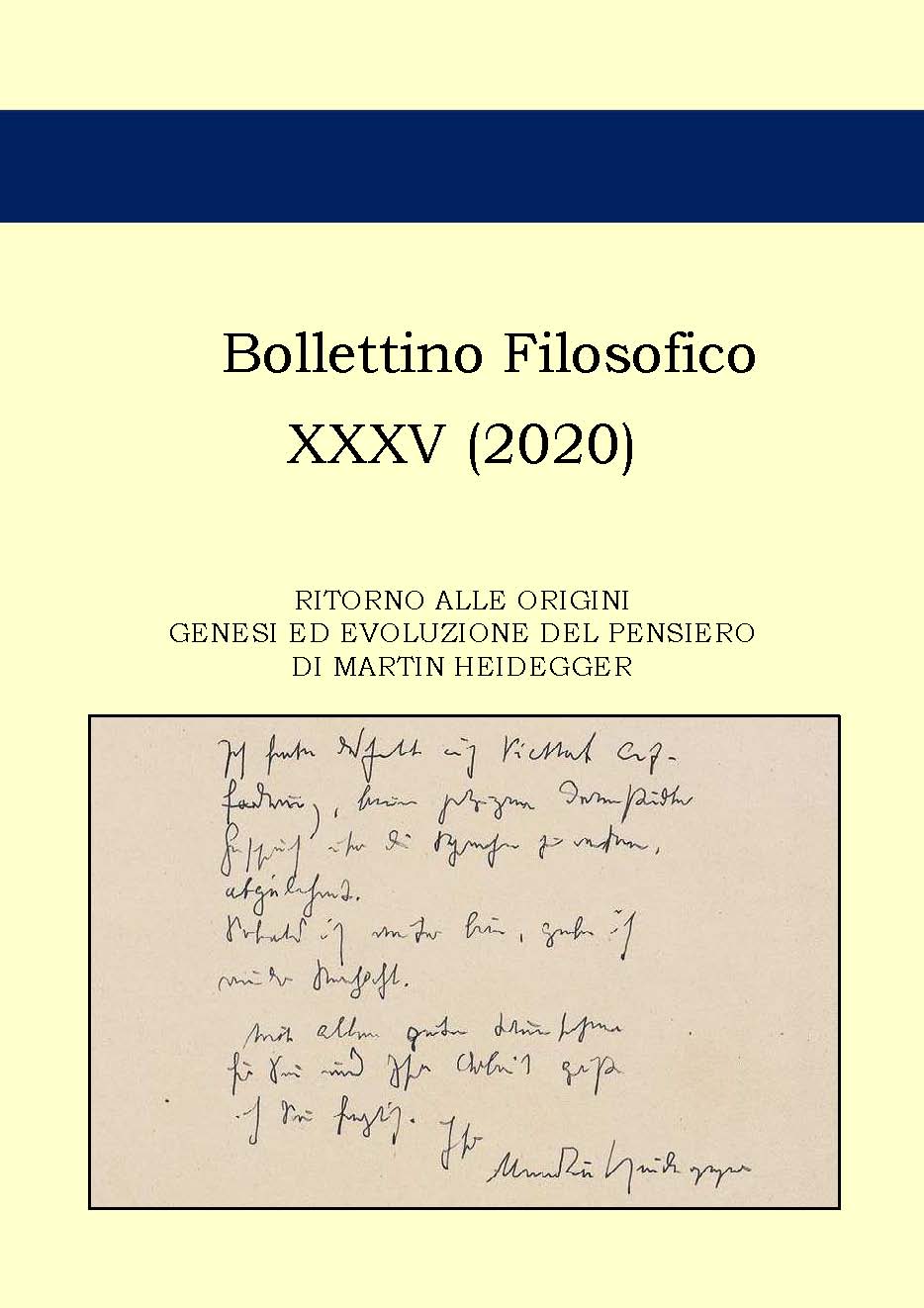Esperienza della fatticità e Kairós nella Vorlesung heideggeriana del 1920/21
Abstract
In the Vorlesung Einleitung in die Phänomenologie der Religion of 1920/21, Heidegger, following some Pauline suggestions deriving from the Letters to the Corinthians and Thessalonians, resorts to a conception of time as a “setback”, that is, as a countermovement that dissolves the “vulgar conception of time”, thereby revealing itself as a “time in reverse”. This time has to be understood as the Kairós, from which all moments of life acquire meaning. The presence of the proto-Christian experience and the Letters of St. Paul is thus crucial not only for a general understanding of the speculative horizon in which Heidegger’s hermeneutics is placed, but also for the very position of the question about the historicity of existence and the irruption of Kairological time into actual life. This perspective allows room for a redefinition of the meaning of being, which can no longer be taken as “mere presence”, nor as “ousiai”, but should rather be understood as “Parousia”.
Keywords: Eigentlichkeit, Factice Life, Kairós, Parousia
Downloads
Bollettino Filosofico pubblica in internet, ad accesso aperto, con licenza:
|
|
CCPL Creative Commons Attribution |
L'autore conserva il copyright sul suo contributo, consentendo tuttavia a chiunque "di riprodurre, distribuire, comunicare al pubblico, esporre in pubblico, rappresentare, eseguire e recitare l'opera", purché siano correttamente citati l'autore e il titolo della rivista. L’autore, al momento della proposta di pubblicazione, è inoltre tenuto a dichiarare che il contenuto e l’organizzazione dell’opera è originale e non compromette in alcun modo i diritti di terzi, né gli obblighi connessi alla salvaguardia di diritti morali ed economici di altri autori o di altri aventi diritto, sia per testi, immagini, foto, tabelle, sia per altre parti di cui il contributo può essere composto. L’autore dichiara altresì di essere a conoscenza delle sanzioni previste dal codice penale e dalle leggi speciali per l’ipotesi di falsità in atti ed uso di atti falsi, e che pertanto Bollettino Filosofico è esente da qualsiasi responsabilità di qualsivoglia natura, civile, amministrativa o penale, e sarà dall'autore tenuta indenne da qualsiasi richiesta o rivendicazione da parte di terzi.
